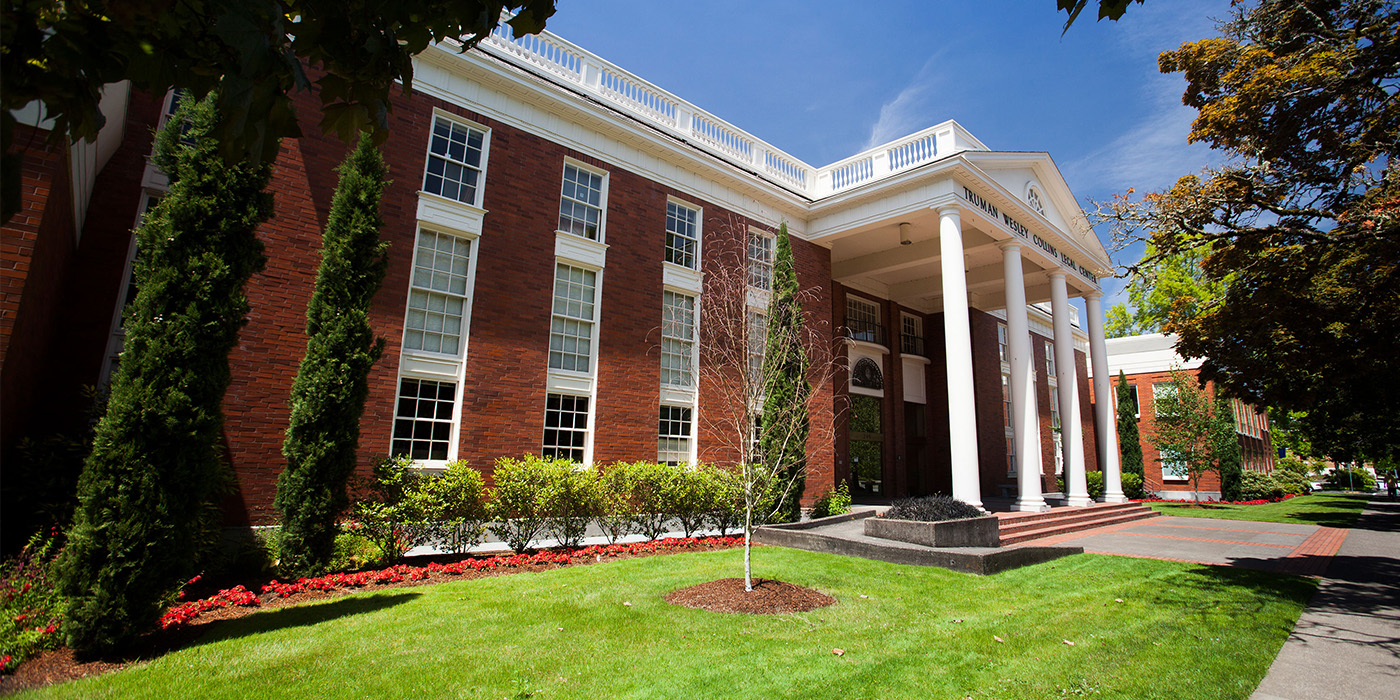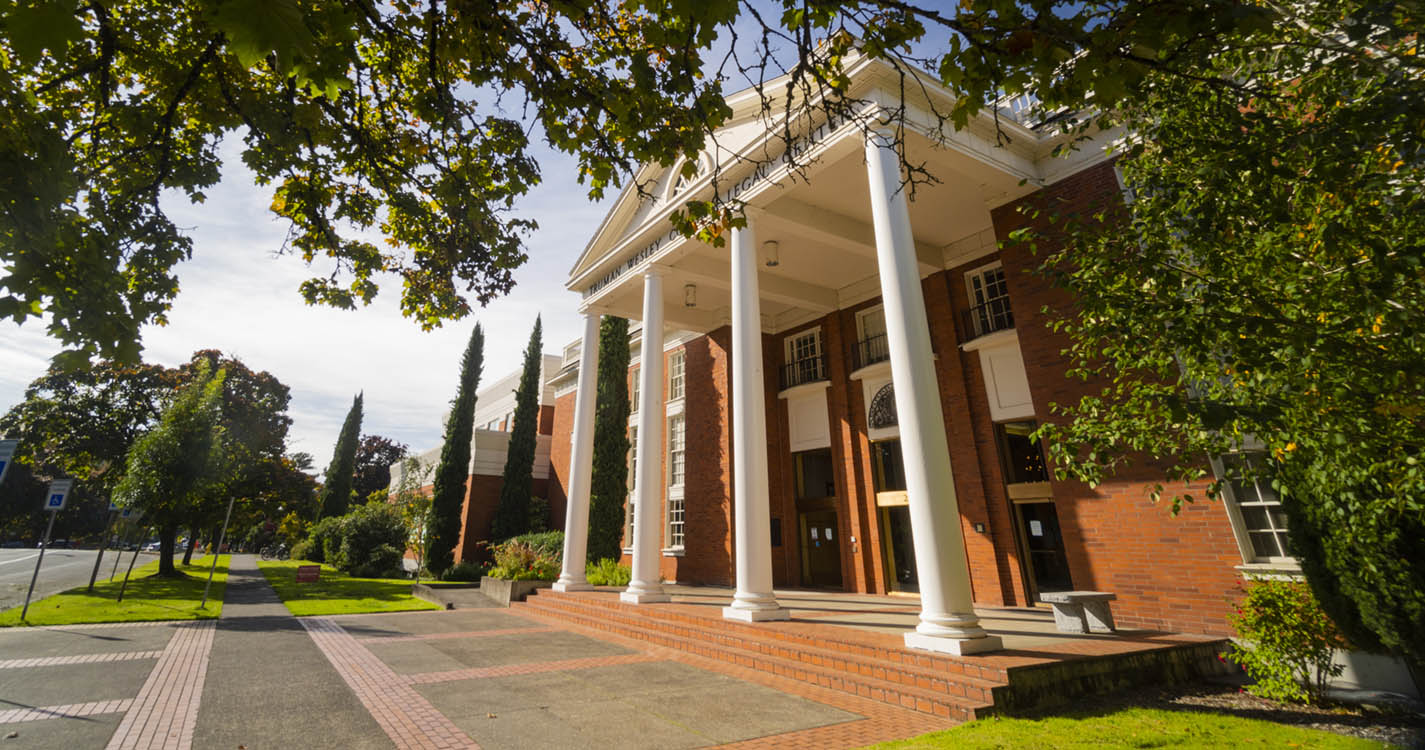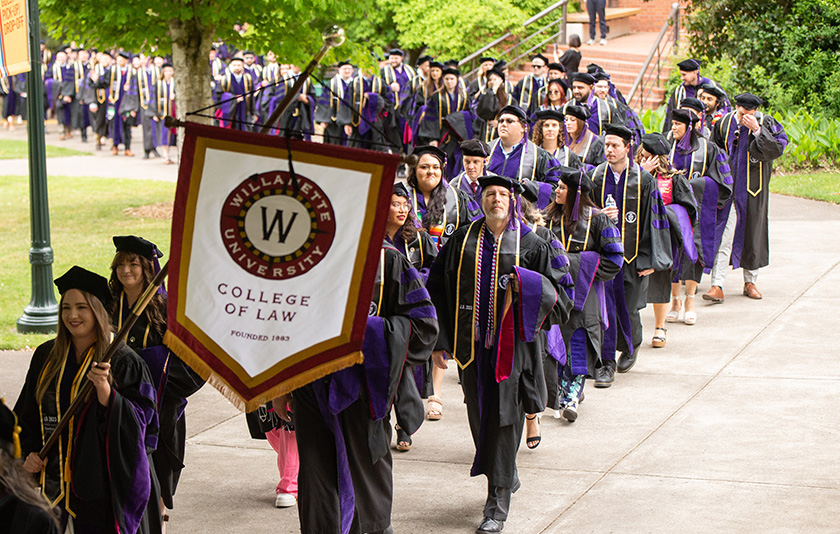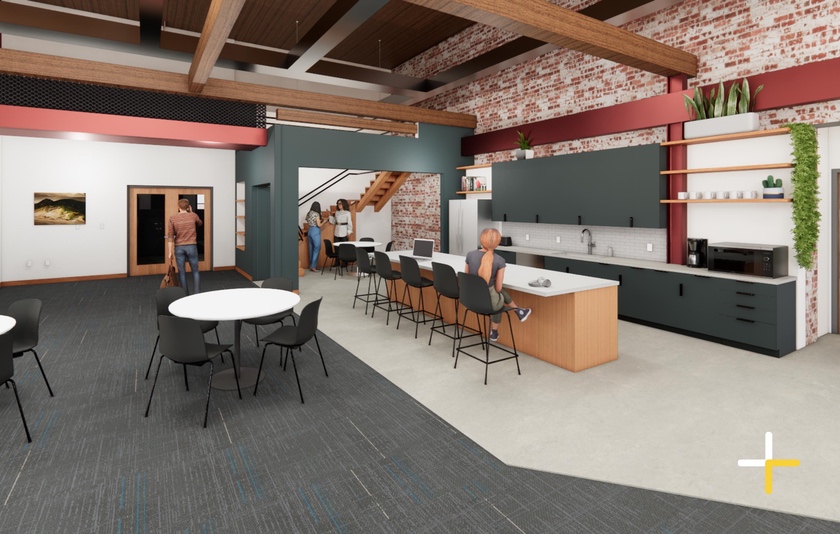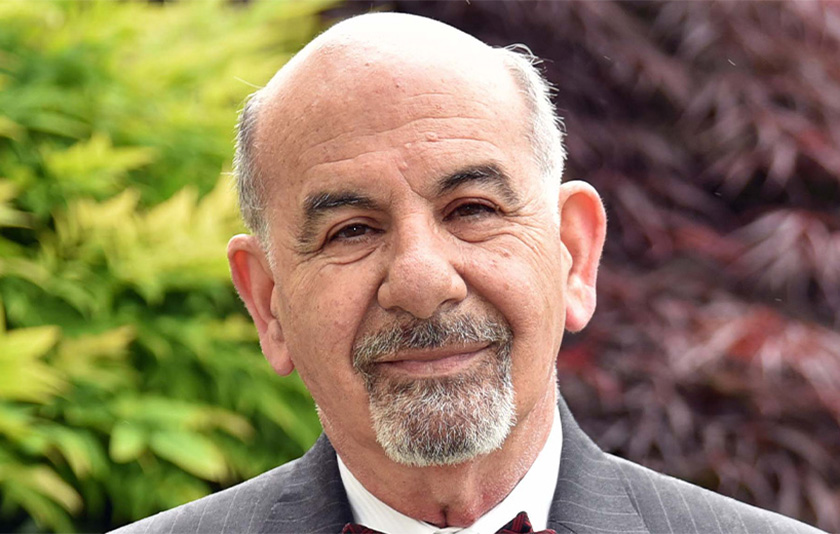In May 2022, then third-year law student Zach Gustin JD’22 found himself awake at 3:30 a.m., assisting in finalizing last-minute preparations for court proceedings in Wyoming case Western Energy Alliance v. Biden. As a student in the Community and Environmental Justice Clinic (CEJC) at Willamette Law, the arguments represented the culmination of the real work he took on in the clinic.
Later that morning, he, another student and clinic director, Professor Sarah Matsumoto, took part in oral arguments. They represented three organizations as intervenor-respondents defending oil and gas lease postponements on federal lands.
In September 2022, they learned the Wyoming federal district court upheld the Biden administration’s postponements, marking a significant victory and an endorsement of the clinic’s efforts.
Gustin says the clinic presented a challenge in building to a level of comfort to work on real casework presented to court staff, clients and judges.
“Knowing that they’re going to be reviewing your work — it was a great learning experience,” Gustin explains. “In law school, you don’t realize how much you don’t know coming out of it. The clinic helps expose you to more of that.
“You’re going to be asked a lot of questions in clinic that you don’t get in class. You don’t know how to interact with clients yet. Learning to interact with clients in clinic helped build a lot of confidence.”
An environmental leaning
New to Willamette Law in 2021, the clinic is headed by Matsumoto, who previously worked as an attorney in public interest environmental law. Growing up in an agricultural community in central Washington, she spent lots of time outdoors, learning about the natural world. She went to college intending to go into public policy or politics.
It wasn’t until she was in law school at Seattle University, taking an Environmental Enforcement class, that she gained a deeper understanding of environmental justice as a distinct field of environmental law.
“The differentiating factor for me was that environmental justice takes a human-centric view of what the environment is — it’s not just wilderness areas that you go recreate in, it’s where we’re spending time in our everyday lives,” she says. “It’s where we live, work, play and learn. Once I had exposure to that concept, I found that there were people doing this work that I was interested in, studying the environmental impacts to people.”
After earning her JD and spending several years practicing in Eugene, Oregon, she moved to Denver. There, she took a clinical teaching fellowship at the University of Denver – Sturm College of Law, known for its experiential learning program. When the fellowship ended, she looked for a full-time clinical teaching role. She feels lucky to have landed back in Oregon at Willamette.
A fresh take on clinic
The CEJC was named purposefully, including “community” in the title to enable students to take on work that isn’t necessarily environmental in nature, but involves important social justice work, Matsumoto says. Over the past year, students have worked on law issues regarding the oil and gas litigation, water-related permits, heat regulations for farmworkers, and forest management in connection with wildfire resilience. Matsumoto hopes to set the program apart from others in the state with the range and type of work taken — devoting more time to issues stemming from rural areas, for example.
“The clinical law program falls under experiential learning broadly. Having it in-house at the law school differentiates it and prioritizes the learning aspect of the experience,” she says. “What I try to do in the clinic is have students, as much as possible, step into the shoes of the lawyer. As early as possible, the cases are theirs to drive.”
Ordinarily, for instance, the attorney who receives a motion would typically decide how to respond. But in clinic, Matsumoto says, the strategic decisions fall more heavily on students, which sometimes presents a challenge for them.
They have to find out if there’s a deadline to respond, if they want to respond, what the key points are, what their clients think, and whether they want to recommend something to them. In other settings, someone else might make the decision, but in clinic, students are encouraged to think it through.
“My goal is to help students develop those decision-making skills that are important in practice,” Matsumoto says. “Then later, they can say, ‘I’ve worked through this before, and now I know to think about deadlines and my client’s interest.’”
Learning the law experientially
With the Oregon Supreme Court currently engaged in attorney licensure reform, including an experiential pathway to practice, Willamette Law has increased its emphasis on hands-on learning. Clinic is one way to get that real-world experience and helps complement first year and other seminar classes, illustrating the concepts learned there, Matsumoto says.
She and Gustin agree that robust clinical offerings also increase access to justice, ensuring that clients who need great lawyers can get them.
“CEJC helps further access to the justice system and advances the goal of providing a healthier environment for everyone, two things we should all care about,” Gustin says.
Matsumoto is an advocate for clinic, of course, but she also tells students to gain experience in other areas, such as externships, clerkships, networking and research positions. Getting exposure to a certain area of law or employer setting is essential, she says.
“When you’re a student, you spend your first year learning how to learn, all kind of in the abstract,” she says. “In the clinic, it can be the first time you’re doing something tangible and real. Doing that practical work is synthesizing that foundation gained in the classroom by applying it to the real world.”

